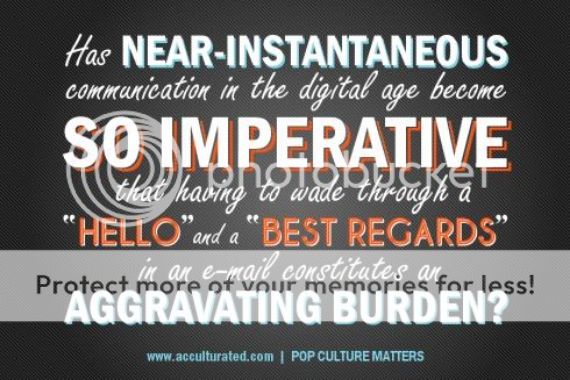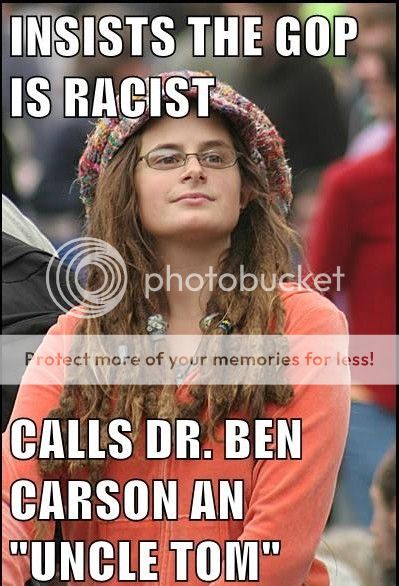Talk about your first-world problems! I saw this yesterday and had to check it out for myself.
In his online Slate article "You Say 'Best.' I Say No," Matthew J. X. Malady confesses to being so inundated by electronic communications that the standard polite closings like "Sincerely yours," "Cheers," and any version of "regards" ("Best regards," "Warm regards," etc.) have pushed him to a breaking point. "It's time," he believes, "to kill the email signoff." Such time-wasting niceties "are holdovers from a bygone era," and today, "the continued and consistent use of antiquated signoffs in email is impossible to justify." Emails, he says, have become more like text messages, "and no one in their right mind uses signoffs in text messages."More on point, I think, is an article in the New York Times that deals with unnecessary, time-wasting questions. It is true that there are loads of formerly common questions that now really shouldn't have to be asked. And since the answers to these questions can be looked up by anybody who has a signal, having to answer somebody else's question can be annoying.
But Malady didn't stop there. Salutations are wasteful irritants as well: "Dear? Hi? Hey? Kill me now." These courtesies, he argues, must become casualties of the urgent need to "streamline" our lives.
He anticipated "protestations and bellyaching from the old guard" who might point out that these conventions make communication personal, polite, respectful; forgoing them would be like hanging up abruptly to conclude a phone call. Malady counters such "sticks-in-the-mud" with the weak and inaccurate explanation that we only say goodbye on the phone to indicate when the call is about to end, whereas "with an email, you can see the conclusion." He preemptively raises other likely objections to his argument:
Shouldn't there be an exception for formal business communications, or for one’s first-ever correspondence with someone? Aren't signoffs kind of nice? Don't they make notes more personal? Without them, wouldn't e-mail become too detached and impersonal?
His reply? "Maybe. But, to be blunt: Tough." In other words, he doesn't dispute those points but simply insists that we forge ahead and sacrifice that human touch in order to "make things easier for everyone."
Now, with Google and online maps at our fingertips, what was once normal can be seen as uncivilized — like asking someone for directions to a house, restaurant or office, when they can easily be found on Google Maps.
I once asked a friend something easily discovered on the Internet, and he responded with a link to lmgtfy.com, which stands for Let Me Google That For You.
In the age of the smartphone, there is no reason to ask once-acceptable questions: the weather forecast, a business phone number, a store's hours. But some people still do. And when you answer them, they respond with a thank-you e-mail.For me, I think it depends on how close a relationship you have with someone. Just like family members rarely stand on ceremony when communicating with each other, it's not necessary to engage in the niceties of "Hello" and "Regards" in an e-mail with someone you know well, even on those rare occasions when an e-mail is preferable to a text. On the other hand, a little bit of civility in a hectic, often rude world is hardly a bad thing, even now, especially when communicating with people who are less familiar to you.
Ultimately, I believe that polite, well-meaning people always know how to convey that sense of civility, whatever the means of communication. And assholes will be assholes no matter how gadget-savvy they are. Everybody settle down!


Actions similar to this have been observed by myself with an alarming increase in occurrence. I hesitate to put them all under the "what's wrong with American society" umbrella; but, WHAT'S WRONG WITH AMERICAN SOCIETY? Politeness in communication, a friendly wave, helping your elderly neighbor, a 'thank you' for holding a door open or letting someone go first at the grocery checkout, and so on are becoming that rare deed of what appears to be a bygone era. The coarsening of the culture is responsible in my opinion with the prevailing mindset "what's in it for me?" and "how quick can I get it?" You might say that the nanny-statists in government surely aren't helping by the demagoguery and class warfare they perpetuate on the populace. (See Obama)
ReplyDeleteManners are not something to be casually tossed overboard. So, I practice my own little 'surprise' on unsuspecting people. Say, I'm in the drive-thru at McDonald's. I will pay the bill for the person in the vehicle behind me and delight when I see the look of astonishment on their face as I'm pulling away! =)
PEOPLE! Remember 'The Golden Rule'!
Firstly, 'wanna' is slang and slovenly, and does not befit a cultural conservative, while 'best regards' is a mistranslation of the German valediction 'besten Grüßen' - you can have 'best wishes' or 'kind regards', but never 'best regards'.
ReplyDelete